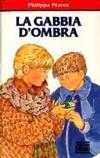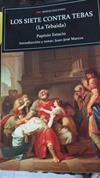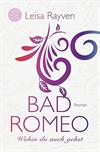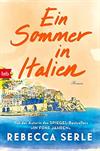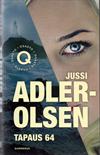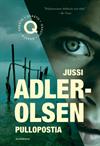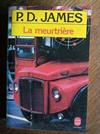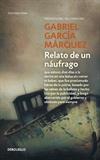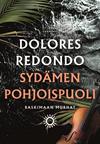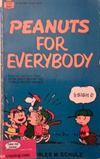
Infidel
3 journalers for this copy...
an incredible book~ horrifying, informative, inspiring, scary....above all, it makes me want dialogue with Muslims in/from various parts of the world, and people in the Netherlands. And it makes me want to read the Koran, to see what it actually does say. I want to know more, understand more.
Rather than simply pass this on to one person, I'm going to try to get a ring/ray started, hopefully starting some discussion.
Amazon has over 230 reviews for this book, with a 5 star avg rating
Editorial Reviews
From Publishers Weekly
Starred Review.
Readers with an eye on European politics will recognize Ali as the Somali-born member of the Dutch parliament who faced death threats after collaborating on a film about domestic violence against Muslim women with controversial director Theo van Gogh (who was himself assassinated). Even before then, her attacks on Islamic culture as "brutal, bigoted, [and] fixated on controlling women" had generated much controversy. In this suspenseful account of her life and her internal struggle with her Muslim faith, she discusses how these views were shaped by her experiences amid the political chaos of Somalia and other African nations, where she was subjected to genital mutilation and later forced into an unwanted marriage. While in transit to her husband in Canada, she decided to seek asylum in the Netherlands, where she marveled at the polite policemen and government bureaucrats. Ali is up-front about having lied about her background in order to obtain her citizenship, which led to further controversy in early 2006, when an immigration official sought to deport her and triggered the collapse of the Dutch coalition government. Apart from feelings of guilt over van Gogh's death, her voice is forceful and unbowed—like Irshad Manji, she delivers a powerful feminist critique of Islam informed by a genuine understanding of the religion. 8-page photo insert. (Feb.)
Copyright © Reed Business Information, a division of Reed Elsevier Inc. All rights reserved.
From The Washington Post's Book World/washingtonpost.com
Reviewed by Anne Applebaum
"I am Ayaan, the daughter of Hirsi, the son of Magan."
In the first scene of Infidel, Ayaan Hirsi Ali is a child of 5, sitting on a grass mat. Her grandmother is teaching her to recite the names of her ancestors, as all Somali children must learn to do. "Get it right," her grandmother warns. "They are your bloodline. . . . If you dishonor them you will be forsaken. You will be nothing. You will lead a wretched life and die alone."
Thus begins the extraordinary story of a woman born into a family of desert nomads, circumcised as a child, educated by radical imams in Kenya and Saudi Arabia, taught to believe that if she uncovered her hair, terrible tragedies would ensue. It's a story that, with a few different twists, really could have led to a wretched life and a lonely death, as her grandmother warned. But instead, Hirsi Ali escaped -- and transformed herself into an internationally renowned spokeswoman for the rights of Muslim women.
The break began when she slipped away from her family on her way to a forced marriage in Canada and talked her way into political asylum in Holland, using a story she herself calls "an invention." Soon after arriving, she removed her head scarf to see if God would strike her dead. He did not. Nor were there divine consequences when, defying her ancestors, she donned blue jeans, rode a bicycle, enrolled in university, became a Dutch citizen, began to speak publicly about the mistreatment of Muslim women in Holland and won election to the Dutch parliament.
But tragedy followed fame. In 2004, Hirsi Ali helped a Dutch director, Theo van Gogh, make a controversial film, "Submission," about Muslim women suffering from forced marriages and wife beating. Van Gogh was murdered by an angry Muslim radical in response, and Hirsi Ali went into hiding. The press began to explore her past, discovering the "inventions" that she had used to get her refugee status. The Dutch threatened to revoke her citizenship; the American Enterprise Institute offered her a job in Washington. And thus she came to be among us.
Even the bare facts of this unusual life would make fascinating reading. But this book is something more than an ordinary autobiography: In the tradition of Frederick Douglass or even John Stuart Mill, Infidel describes a unique intellectual journey, from the tribal customs of Hirsi Ali's Somali childhood, through the harsh fundamentalism of Saudi Arabia and into the contemporary West. Along the way, Hirsi Ali displays what surely must be her greatest gift: the talent for recalling, describing and honestly analyzing the precise state of her feelings at each stage of that journey.
She describes how she felt as a teenager, voluntarily wearing a hijab, a black cloak that hid her body: "It sent out a message of superiority: I was the one true Muslim. All those other little girls with their little white headscarves were children, hypocrites." She writes of meeting her husband-to-be's family: "I concentrated on behaving properly: Speaking softly, being polite, avoiding shame to my parents. I felt empty."
She also describes how horrified she felt as an adult after Sept. 11, 2001, reaching for the Koran to find out whether some of Osama bin Laden's more blood-curdling statements -- "when you meet the unbelievers, strike them in the neck" -- were direct quotations. "I hated to do it," she wrote, "because I knew that I would find bin Laden's quotations in there." And there were consequences: "The little shutter at the back of my mind, where I pushed all my dissonant thoughts, snapped open after the 9/11 attacks, and it refused to close again. I found myself thinking that the Quran is not a holy document. It is a historical record, written by humans. . . . And it is a very tribal and Arab version of events. It spreads a culture that is brutal, bigoted, fixated on controlling women, and harsh in war."
That moment led Hirsi Ali to her most profound conclusion: that the mistreatment of women is not an incidental problem in the Muslim world, a side issue that can be dealt with once the more important political problems are out of the way. Rather, she believes that the enslavement of women lies at the heart of all of the most fanatical interpretations of Islam, creating "a culture that generates more backwardness with every generation."
Ultimately, it led to her most controversial conclusion too: that Islam is in a period of transition, that the religion as it is currently practiced is often incompatible with modernity and democracy and must radically transform itself in order to become so. "We in the West," she writes, "would be wrong to prolong the pain of that transition unnecessarily, by elevating cultures full of bigotry and hatred toward women to the stature of respectable alternative ways of life." That sentiment, when first expressed in Holland, infuriated not only Hirsi Ali's compatriots but also Dutch intellectuals uneasy about criticizing the immigrants in their midst, particularly because both Hirsi Ali and Theo van Gogh went further than the usual criticism of radical, political Islam: Both believed that even "ordinary" forms of Islam, such as those practiced in Hirsi Ali's Somalia, contain elements of discrimination against women that should not be tolerated in the West. Thanks to this belief in female equality, Hirsi Ali now requires permanent bodyguards. But having "moved from the world of faith to the world of reason," Hirsi Ali now says she cannot go back.
Still, she describes herself as lucky: "How many girls born in Digfeer Hospital in Mogadishu in November 1969 are even alive today?" she asks rhetorically. "And how many have a real voice?" To that, it's worth adding another question: How many women with Hirsi Ali's experience of radical Islam have emerged to tell their stories? And how many can do so with such clarity and insight? Infidel is a unique book, Ayaan Hirsi Ali is a unique writer, and both deserve to go far.
Copyright 2007, The Washington Post. All Rights Reserved.
Rather than simply pass this on to one person, I'm going to try to get a ring/ray started, hopefully starting some discussion.
Amazon has over 230 reviews for this book, with a 5 star avg rating
Editorial Reviews
From Publishers Weekly
Starred Review.
Readers with an eye on European politics will recognize Ali as the Somali-born member of the Dutch parliament who faced death threats after collaborating on a film about domestic violence against Muslim women with controversial director Theo van Gogh (who was himself assassinated). Even before then, her attacks on Islamic culture as "brutal, bigoted, [and] fixated on controlling women" had generated much controversy. In this suspenseful account of her life and her internal struggle with her Muslim faith, she discusses how these views were shaped by her experiences amid the political chaos of Somalia and other African nations, where she was subjected to genital mutilation and later forced into an unwanted marriage. While in transit to her husband in Canada, she decided to seek asylum in the Netherlands, where she marveled at the polite policemen and government bureaucrats. Ali is up-front about having lied about her background in order to obtain her citizenship, which led to further controversy in early 2006, when an immigration official sought to deport her and triggered the collapse of the Dutch coalition government. Apart from feelings of guilt over van Gogh's death, her voice is forceful and unbowed—like Irshad Manji, she delivers a powerful feminist critique of Islam informed by a genuine understanding of the religion. 8-page photo insert. (Feb.)
Copyright © Reed Business Information, a division of Reed Elsevier Inc. All rights reserved.
From The Washington Post's Book World/washingtonpost.com
Reviewed by Anne Applebaum
"I am Ayaan, the daughter of Hirsi, the son of Magan."
In the first scene of Infidel, Ayaan Hirsi Ali is a child of 5, sitting on a grass mat. Her grandmother is teaching her to recite the names of her ancestors, as all Somali children must learn to do. "Get it right," her grandmother warns. "They are your bloodline. . . . If you dishonor them you will be forsaken. You will be nothing. You will lead a wretched life and die alone."
Thus begins the extraordinary story of a woman born into a family of desert nomads, circumcised as a child, educated by radical imams in Kenya and Saudi Arabia, taught to believe that if she uncovered her hair, terrible tragedies would ensue. It's a story that, with a few different twists, really could have led to a wretched life and a lonely death, as her grandmother warned. But instead, Hirsi Ali escaped -- and transformed herself into an internationally renowned spokeswoman for the rights of Muslim women.
The break began when she slipped away from her family on her way to a forced marriage in Canada and talked her way into political asylum in Holland, using a story she herself calls "an invention." Soon after arriving, she removed her head scarf to see if God would strike her dead. He did not. Nor were there divine consequences when, defying her ancestors, she donned blue jeans, rode a bicycle, enrolled in university, became a Dutch citizen, began to speak publicly about the mistreatment of Muslim women in Holland and won election to the Dutch parliament.
But tragedy followed fame. In 2004, Hirsi Ali helped a Dutch director, Theo van Gogh, make a controversial film, "Submission," about Muslim women suffering from forced marriages and wife beating. Van Gogh was murdered by an angry Muslim radical in response, and Hirsi Ali went into hiding. The press began to explore her past, discovering the "inventions" that she had used to get her refugee status. The Dutch threatened to revoke her citizenship; the American Enterprise Institute offered her a job in Washington. And thus she came to be among us.
Even the bare facts of this unusual life would make fascinating reading. But this book is something more than an ordinary autobiography: In the tradition of Frederick Douglass or even John Stuart Mill, Infidel describes a unique intellectual journey, from the tribal customs of Hirsi Ali's Somali childhood, through the harsh fundamentalism of Saudi Arabia and into the contemporary West. Along the way, Hirsi Ali displays what surely must be her greatest gift: the talent for recalling, describing and honestly analyzing the precise state of her feelings at each stage of that journey.
She describes how she felt as a teenager, voluntarily wearing a hijab, a black cloak that hid her body: "It sent out a message of superiority: I was the one true Muslim. All those other little girls with their little white headscarves were children, hypocrites." She writes of meeting her husband-to-be's family: "I concentrated on behaving properly: Speaking softly, being polite, avoiding shame to my parents. I felt empty."
She also describes how horrified she felt as an adult after Sept. 11, 2001, reaching for the Koran to find out whether some of Osama bin Laden's more blood-curdling statements -- "when you meet the unbelievers, strike them in the neck" -- were direct quotations. "I hated to do it," she wrote, "because I knew that I would find bin Laden's quotations in there." And there were consequences: "The little shutter at the back of my mind, where I pushed all my dissonant thoughts, snapped open after the 9/11 attacks, and it refused to close again. I found myself thinking that the Quran is not a holy document. It is a historical record, written by humans. . . . And it is a very tribal and Arab version of events. It spreads a culture that is brutal, bigoted, fixated on controlling women, and harsh in war."
That moment led Hirsi Ali to her most profound conclusion: that the mistreatment of women is not an incidental problem in the Muslim world, a side issue that can be dealt with once the more important political problems are out of the way. Rather, she believes that the enslavement of women lies at the heart of all of the most fanatical interpretations of Islam, creating "a culture that generates more backwardness with every generation."
Ultimately, it led to her most controversial conclusion too: that Islam is in a period of transition, that the religion as it is currently practiced is often incompatible with modernity and democracy and must radically transform itself in order to become so. "We in the West," she writes, "would be wrong to prolong the pain of that transition unnecessarily, by elevating cultures full of bigotry and hatred toward women to the stature of respectable alternative ways of life." That sentiment, when first expressed in Holland, infuriated not only Hirsi Ali's compatriots but also Dutch intellectuals uneasy about criticizing the immigrants in their midst, particularly because both Hirsi Ali and Theo van Gogh went further than the usual criticism of radical, political Islam: Both believed that even "ordinary" forms of Islam, such as those practiced in Hirsi Ali's Somalia, contain elements of discrimination against women that should not be tolerated in the West. Thanks to this belief in female equality, Hirsi Ali now requires permanent bodyguards. But having "moved from the world of faith to the world of reason," Hirsi Ali now says she cannot go back.
Still, she describes herself as lucky: "How many girls born in Digfeer Hospital in Mogadishu in November 1969 are even alive today?" she asks rhetorically. "And how many have a real voice?" To that, it's worth adding another question: How many women with Hirsi Ali's experience of radical Islam have emerged to tell their stories? And how many can do so with such clarity and insight? Infidel is a unique book, Ayaan Hirsi Ali is a unique writer, and both deserve to go far.
Copyright 2007, The Washington Post. All Rights Reserved.
Here we go~~
JDT CA
bookluver1965 CANADA ---- lost in the mail on its way to dg7500
Put your hands together for pinklady60 ~~ she's given us another copy to continue the ring!
dg asked to be moved if possible, so I've switched her with judy, and we're still able keep the Canadians from having to mail w/in Canada.
judygreeneyes US (CA)/international)
boomda181 CANADA (US/international)
lottuli FIN (international)
dg7500 US (us/Can)
perryfran US(international)
kobie03 CAN (international)
teuffi UK (anywhere)
Cassiopaeia Wales (International)
mrbaggins1 South Africa (international)<-here
julie2007 AU (au preferred)
sunfi US (international)
Because there is a fairly long list and this is meant to be a discussion read, please pass it along to those waiting in a timely manner. More than with most rings, I'd really appreciate your taking a temporary pass if you're swamped when pm'd for your addy. Just let me know, and I'll change you to farther down the list. I will keep changes updated.
The ring will also remain open, but readers added later will be at the end of the list, and must be willing to ship internationally.
I hope you all find this as enthralling as I did~~I look forward to hearing what you think of it.
JDT CA
bookluver1965 CANADA ---- lost in the mail on its way to dg7500
Put your hands together for pinklady60 ~~ she's given us another copy to continue the ring!
dg asked to be moved if possible, so I've switched her with judy, and we're still able keep the Canadians from having to mail w/in Canada.
judygreeneyes US (CA)/international)
boomda181 CANADA (US/international)
lottuli FIN (international)
dg7500 US (us/Can)
perryfran US(international)
kobie03 CAN (international)
teuffi UK (anywhere)
Cassiopaeia Wales (International)
mrbaggins1 South Africa (international)<-here
julie2007 AU (au preferred)
sunfi US (international)
Because there is a fairly long list and this is meant to be a discussion read, please pass it along to those waiting in a timely manner. More than with most rings, I'd really appreciate your taking a temporary pass if you're swamped when pm'd for your addy. Just let me know, and I'll change you to farther down the list. I will keep changes updated.
The ring will also remain open, but readers added later will be at the end of the list, and must be willing to ship internationally.
I hope you all find this as enthralling as I did~~I look forward to hearing what you think of it.
Honored to be a part of this ring.
Looking forward to a thought-provoking and disturbing read.
Thanks, Erishkigal!
Looking forward to a thought-provoking and disturbing read.
Thanks, Erishkigal!
I've wanted to read this book since my book group read/discussed Murder in Amsterdam: The Death of Theo Van Gogh and the Limits of Tolerance by Ian Buruma (which I recommend for a related perspective on the filmmaker of Submission and the political/social challenges and changes in Holland)
It's all so eye-opening, thought-provoking, spirit-disturbing - with no easy answers!
So many of us value tolerance of others' religions, politics - yet it's more complex than that. And it underscores the danger of extremism in any form.
An observation on the Quran toward the end of the book could be said (with a few words/names changed) about the bible - esp. the Old Testament - so important to Jews and Christians (and me):
"it is a historical record, written by humans. It is one version of events, as perceived by the men who wrote it 150 years after the Prophet Mohammed died. And it is a very tribal and Arab version of events. It spreads a culture that is brutal, bigoted, fixated on controlling women, and harsh in war.
The Prophet did teach us a lot of good things.... spiritually appealing.... my life was enriched by the Quranic injunctions to be compassionate and show charity to others.....Most [Muslims] think that Islam is about peace. It is from these people, honest and kind, that the fallacy has arisen that Islam is peaceful and tolerant."
Whew - but I'm not giving up hope for us all!
Sending on to bookluver1965 - with thanks again to Erishkigal!
It's all so eye-opening, thought-provoking, spirit-disturbing - with no easy answers!
So many of us value tolerance of others' religions, politics - yet it's more complex than that. And it underscores the danger of extremism in any form.
An observation on the Quran toward the end of the book could be said (with a few words/names changed) about the bible - esp. the Old Testament - so important to Jews and Christians (and me):
"it is a historical record, written by humans. It is one version of events, as perceived by the men who wrote it 150 years after the Prophet Mohammed died. And it is a very tribal and Arab version of events. It spreads a culture that is brutal, bigoted, fixated on controlling women, and harsh in war.
The Prophet did teach us a lot of good things.... spiritually appealing.... my life was enriched by the Quranic injunctions to be compassionate and show charity to others.....Most [Muslims] think that Islam is about peace. It is from these people, honest and kind, that the fallacy has arisen that Islam is peaceful and tolerant."
Whew - but I'm not giving up hope for us all!
Sending on to bookluver1965 - with thanks again to Erishkigal!
Sorry for taking so long to journal this!! I've rec'd it and am reading it right now (it's incredible)! Thanks Erishkigal!! Will journal again and send on the next customer soon. Cheers!
I take my hat off to Ayaan Hirsi Ali for being brave enough to present her point of view - one that is so unwelcome in her religious community - so candidly. I would highly recommend everyone to read The End of Faith, by Sam Harris, for a compelling argument to modernize our spiritual belief systems as those that arose during the Middle Ages and prior to that are just not relevant to the lives of modern men and women (especially women). I look forward to following up by reading Ali's collection of essays on the plight of women in the Middle East, The Caged Virgin.
this book~~alas~~ was lost in the mail between the second and third readers:((
But now, thanks to pinklady60, the ring will continue!!! Yay!!
Thank you, thank you, thank you!!!!
The new copy can be found here:
INFIDEL
But now, thanks to pinklady60, the ring will continue!!! Yay!!
Thank you, thank you, thank you!!!!
The new copy can be found here:
INFIDEL



